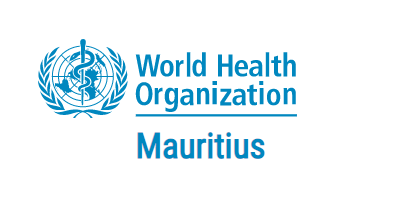The World Health Organization (WHO) Mauritius Country Office launched its new Biennial Workplan 2024-2025 with the Ministry of Health and Wellness (MOHW) on March 18, 2024. This results-focused document, which is the fruit of a close collaborative effort between WHO Mauritius and the MOHW, defines the priorities of the Organization for the next two years in terms of public health outcomes.
In line with the WHO’s 13th General Programme of Work (GPW13), these are divided into four pillars, namely Advancing Universal Health Coverage; Addressing Health Emergencies; Promoting Healthier Populations; and Promoting Data and Innovation. These pillars form the core of WHO Mauritius’ work in supporting the MOHW in its vision to continuously improve the quality of the country’s health services.
The launching ceremony marks the beginning of the operationalization phase of the WHO Biennial Workplan and Programme Budget 2024-2025. It featured a comprehensive overview of the Workplan including its high priority outputs during a presentation by WHO Mauritius’ Programme Management Officer and technical staff.
The Minister of Health and Wellness, Kailash Jagutpal, took the opportunity to congratulate WHO Mauritius and his Ministry for the work already accomplished, stating that the broad range of outputs contained in the new Workplan was a promising starting point for the next biennium.
For her part, WHO Representative, Dr Anne Ancia, explained that the Workplan “defines our strategic deliverables for the next two years and allocates resources for their achievement”, before noting that WHO Mauritius is confident that its implementation “will further accelerate the country’s impressive strides in health and health systems, while also addressing the emerging risks which are threatening some of these achievements”.
Flagship projects of the previous Workplan 2022-2023 include the elaboration of a National Integrated Action Plan and Service Framework for Non-Communicable Diseases (NCDs account for 80% of the country’s disease burden and 85% of mortalities), the setting up of an Integrated Care for Older People (ICOPE) Strategic and Action Plan (the percentage of the population aged 60 and above more than doubled between 2000 and 2021), the drafting of new legislation for food safety and tobacco control, as well as WHO Mauritius’ ongoing technical support and capacity building activities.
Dr Ancia also warned that significant health challenges lie ahead: “Climate change threatens the health system and some of the health achievements of the past decades, particularly when it comes to communicable diseases; and the resurgence of dengue is just one example. Anti-microbial resistance is rapidly eroding the treatment available for some key infectious diseases, such as tuberculosis, malaria and HIV. Growing movements of people, goods and services and the emergence of new epidemic prone diseases continue to threaten national, regional and global health security, and changes in life habits, often due to socioeconomic upheavals pause newer risks for our health and wellbeing.”
The Biennial Workplan and Programme Budget 2024-2025 were elaborated during a seven-step process which began with the indentification of health gaps and trends according to WHO Mauritius’ current Country Cooperation Strategy 2023-2026, and concluded with a quality check by the output delivery team. They include a detailed description of planned outputs, each of which is tied to a key performance indicator to measure the impact of the activity. In the words of the WHO’s Results Framework Management: “What cannot be measured is not achieved.”
The Programme Budget 2024-2025 can be consulted here.
Distributed by APO Group on behalf of World Health Organization (WHO) – Mauritius.

